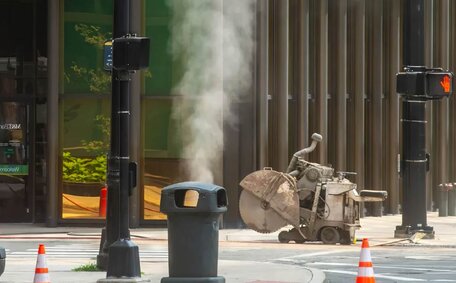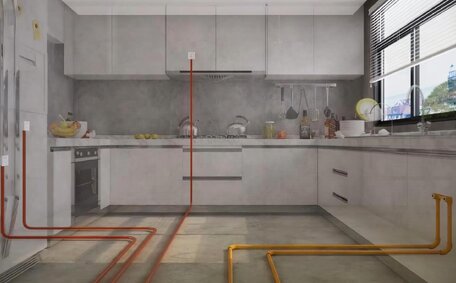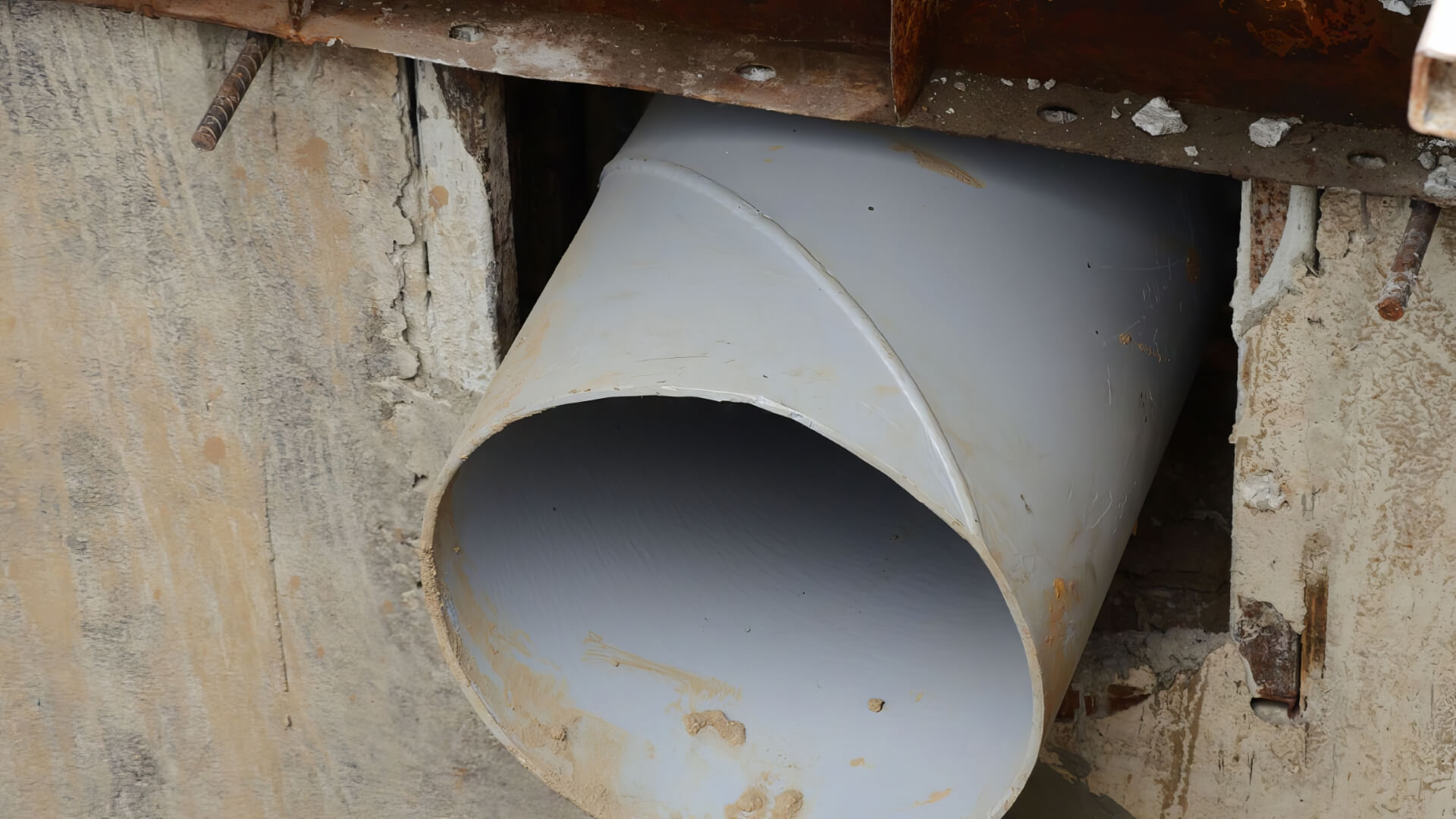Importance of a Properly Functioning Drainage System
Maintaining a healthy drainage system is critical to avoid water damage, prevent mould growth, and eradicate foul odours in your home. Effective drainage funnels water into the sewer or septic system, handling wastewater from sinks, showers, and other fixtures, thereby caring for the drains your home relies on. A functional drainage system ensures clean, dry living spaces and minimises health and hygiene risks.
Without proper drainage, blocked drains can lead to issues like stagnant water accumulation, causing seepage into walls or subflooring. These conditions promote mould growth and structural decay, which can result in unpleasant musty odours. Additionally, when wastewater is not going down as it should, backed-up sewer lines can cause it to overflow indoors, resulting in extremely unhygienic and hazardous conditions.
Functional drainage, an integral part of your plumbing, is crucial for directing your homes water, protecting foundations and roofs from rainwater damage. A secure gutter distribution system channels roof runoff into downspouts, steering excess water away from your home and protecting it from exterior water damage. Ground shaping and suitable landscape grading then steer surplus water safely away from your home.
By maintaining your drainage system, you avoid the inconvenience and expense of emergency cleanups and significant repairs. Regular maintenance identifies minor issues before they escalate, ensuring efficient plumbing performance.
Using Drain Guards to Prevent Clogs
Installing drain guards on showers, sinks, and bathtubs efficiently captures hair and debris, preventing clogs. This preventive measure complements the use of drain cleaners, keeping your drains free of blockages and build-up.
Drain guards are available in various styles and serve as essential components to protect your home’s drains. They are effortless to detach and scrub, helping to keep your drains clean and in pristine condition as required.
Using drain guards can diminish the occurrence of clogs, reducing the necessity for chemical treatments or professional snaking services. By trapping debris in an accessible spot, among other things can do to safeguard your pipes, drain guards compel you to pay attention to easier maintenance and enhance the longevity of your plumbing system.
Simple regular cleaning of a drain guard removes trapped grease and particulates before they can amass into a substantial clog. Integrating drain cleaner into this routine encourages consistent, trouble-free drain operation and a healthier home environment. Investing in drain guards is an effective strategy to maintain smooth functioning of your drainage system, highlighting that prevention is often the best solution.
Regular Drain Maintenance Best Practices
Incorporate these best practices into your routine to maintain a healthy drainage system and prevent clogs:
- Use a drain guard or strainer to maintain your drains and catch debris before it can go down your drains
- Flush your drains regularly with boiling water to dissolve stubborn build up and keep your drains clear
- Start maintenance with safer natural alternatives like monthly vinegar and baking soda treatments to clean pipes effectively.
- Employ mild cleaners, for example, enzymatic cleaners, learning how maintain your effective cleanliness without caustic chemicals
- Inspect sink connections for leaks and tighten as needed
- Maintain steady water pressure and direct water away from your property by routinely checking supply lines.
- Have a professional inspection yearly to identify problems
- Consider installing your garbage disposal in your kitchen specifically for food waste management
Avoid disposing of fats, oils, or abrasive materials in your pipes to prevent build-up and further complications. Compost these instead, which can be a more eco-friendly option.
Limit garbage disposal use to food scraps only and avoid bones, grease, or tough peelings. Always run hot water through the disposal during operation to ensure smooth flow into the plumbing.
Use debris-catching guards, remove grime with hot water, and apply enzymatic treatments to quickly address minor leaks and avert more expensive repairs. Incorporating regular professional assessments is something things can do to maintain healthy drainage for years to come.
When to Call a Professional Plumber
While many minor drain blockages or leaks can be resolved through vigilant at-home maintenance, certain situations demand the expertise of professional plumbers.
Get in touch with established local specialists such as Rouse Hill Plumbing if you encounter drain clogs that can easily recur and are not cleared by standard methods. This holds true for significant sewer line blockages where there are things you can do to involve composite materials like plastic and metal alike. Professionals know how fix these issues with industry-grade equipment and specialised expertise to thoroughly clear difficult clogs.
Call for professional assistance to guarantee proper installation of new drains or sewer connections and to detect leakage signs. Improper installations often lead to leakage, corrosion, and a host of drainage issues down the line.
Annual professional inspections can identify potential issues within wall cavities or buried pipes before they result in severe failures. Trained specialists are on hand, which we entrust to prevent blockages, know when it’s necessary to thoroughly assess your system and confirm its integrity.
Rouse Hill Plumbing offers a comprehensive suite of prompt emergency services to the Rouse Hill area of Sydney, encompassing drain cleaning, leak detection, and repairs for hot water systems and gas fittings. Get in touch with them for all your residential or commercial plumbing needs.
Signs of Drainage Problems
Several telltale signs can indicate developing drainage system issues:
- Slow-draining sinks, tubs or showers
- Gurgling sounds from pipes
- Poolings of water around the foundation or in the yard
- Foul sewer gas odours indoors
- Lower water pressure
- Leaking pipes, fittings or water stains on walls/ceilings
It’s advisable to address drainage issues immediately, as they naturally worsen over time. Likewise, monitor your property after heavy rains.
Following your pets’ shedding seasons, check sink connections for clogs to catch pet hair or leaves before they accumulate. It’s crucial to understand how to manage difficult situations; make sure your drainage directs runoff from the roof away from your property and that ground gradients channel groundwater clear of the foundation.
Sudden wet patches around the yard’s low points or foul pure sewer smells indoors indicate main sewer line trouble. Contact an emergency plumber to investigate potential blockages before sewage backups occur in your home. Addressing these issues early on can lead to quick, cost-effective resolution of your drainage problems, simplifying repairs.
FAQs About Drain Maintenance
What are some common causes of clogged drains?
Grease, oil, hair, and debris like food scraps often stick to pipe walls and accumulate over time, causing buildup down your drain. Tree roots infiltrating exterior drainage lines can also obstruct proper water flow.
How can I help prevent drain clogs?
Use drain guards and strainers to trap debris such as your hair and food scraps before they enter pipes. Regularly flush pipes with boiling water followed by cold water to dissolve grease and soap scum buildup. Applying a monthly vinegar baking soda treatment also contributes to cleaning pipes efficiently.
What is the best way maintain my drains?The best preventative maintenance is using enzymatic drain cleaner solutions instead of harsh chemicals, inspecting fittings for leaks, checking water pressure at taps, and having a professional inspection yearly to catch issues early.
How often should sink or tub drains be cleaned?
Make sure to clean your drains, including your sink, tub, and shower, at least every 3 months using boiling water or a natural cleaning solution. Make it a habit to visually inspect drain guards and strainers each week during routine cleaning activities, such as dishwashing.
What signs indicate I have a drainage problem?
Slow-draining water, gurgling sounds from pipes, bad sewage odours in the home, pooling water around the foundation, leaking pipes, and reduced water pressure signal developing issues.
Contacting Us for Drain Services
Rouse Hill Plumbing stands by to assist the Rouse Hill community of Sydney with any drain cleaning, plumbing repairs, or emergency services. Contact our team at 1300 349 338 or jobs@rousehillplumbingservices.com.au to schedule a consultation.
Our skilled and fully insured plumbers have the expertise and tools necessary to resolve all residential and commercial drainage problems efficiently. We specialise in assessments and maintenance to preserve functionality, utilising methods focused on cleanliness, sustainability, and long-term system health.
Rely on Rouse Hill Plumbing for thorough drainage services, such as inspections, cleaning, repairs, hot water systems, and gas fitting issues, including blocked drains. Our priority is restoring proper drainage to keep your home or business safe from water damage, bacteria, mould growth and foul odours.
Rouse Hill Plumbing pledges reliable, high-quality plumbing with upfront pricing. Contact us to prevent costly drainage disasters or get your existing system back in order.






